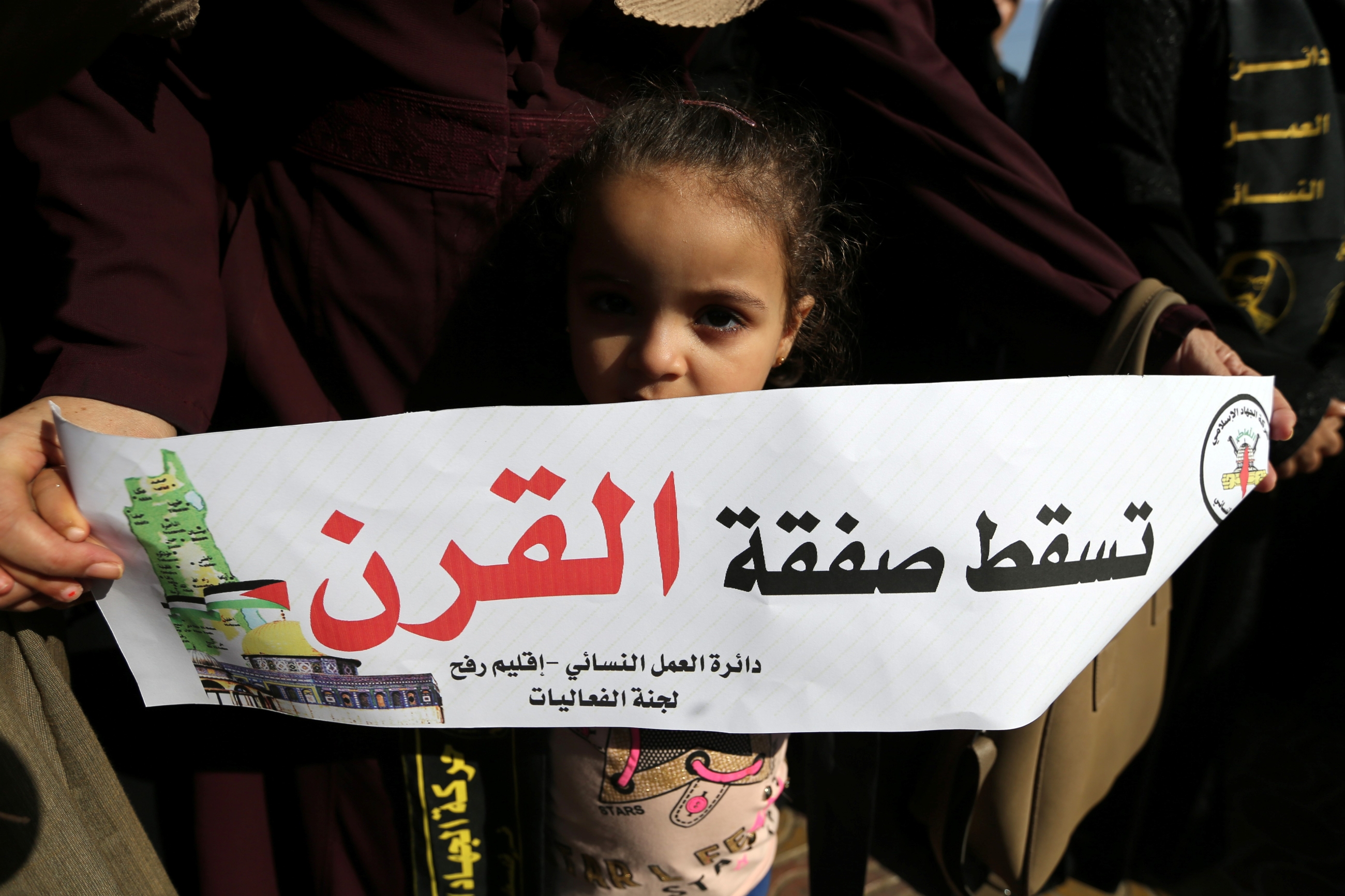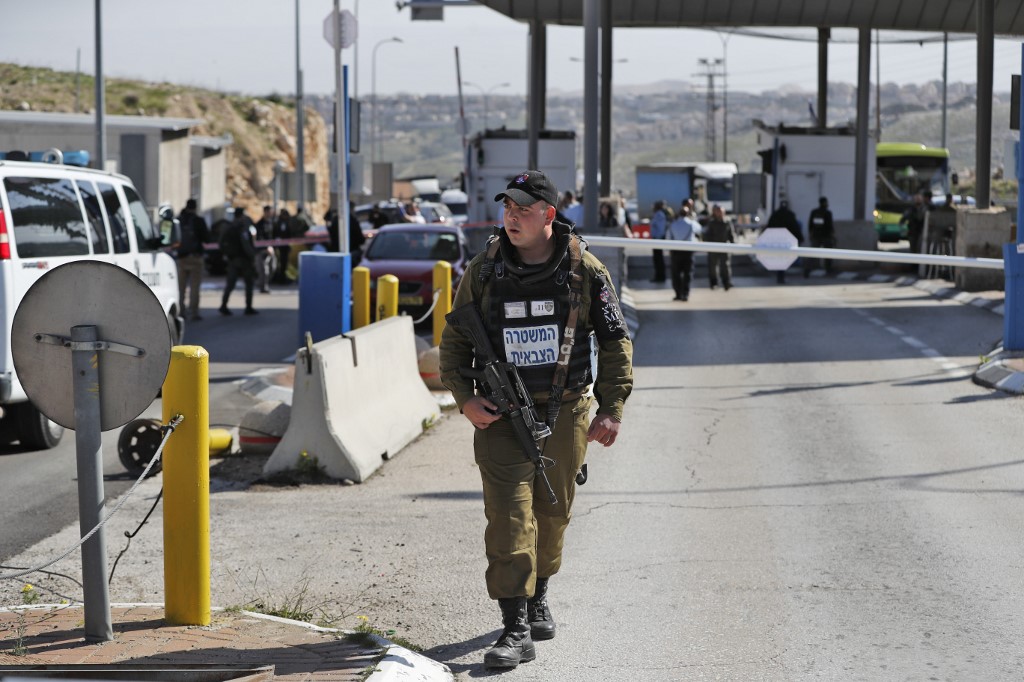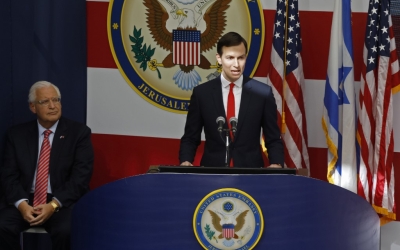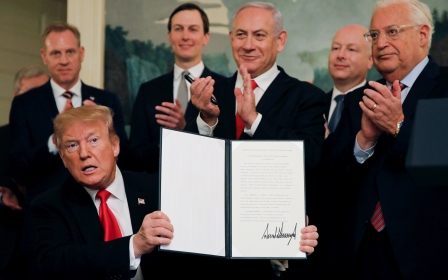Bahrain summit: There is no economic path to Middle East peace

In launching the “deal of the century” for Palestinian-Israeli peace along the economic path, Trump adviser Jared Kushner is following a well-worn track that leads to a dead end.
As the first step towards peace efforts, Kushner and US envoy Jason Greenblatt will hold the “Peace to Prosperity” workshop in Bahrain this week. Attendees will be invited to make pledges to support investment in the Palestinian economy - despite the fact that “economic peace” has been tried and failed before, as vital business elements are lacking in the absence of a comprehensive peace process.
Barriers to investment
In 2011, Israeli Prime Minister Benjamin Netanyahu and former Middle East Quartet envoy Tony Blair announced a package of “economic peace” measures to kickstart the peace process. Development of one of the Palestinian economy’s potentially largest projects, the “Gaza Marine” natural gas field, was at the centre of that package.
A comprehensive peace process that brings a greater degree of political stability to the region will lay the foundations for a solid business environment
Although there were talks on developing that field, which I attended, no significant progress was made, as neither the Israelis nor the Palestinians seemed ready to do a deal. During those talks, Israeli government representatives avoided the term “Palestinian”, while Palestinian representatives shunned the term “Israeli”. Petty as this seems, it points to the depth of mistrust and the height of the barriers that must be overcome to create an investment-friendly environment.
The wider package of “economic peace” measures also ran into trouble. An essential starting point for improving the Palestinian economy and the business environment is reducing, or removing, the Israeli checkpoints in the occupied West Bank. These checkpoints choke the movement of goods and people.
The Gaza Strip, meanwhile, remains almost completely cut off from the outside world, due to Israel’s decade-long siege of the territory.
Business uncertainty
There has been no shortage of interest in investing in the Palestinian economy, where there is much potential in energy, transport, technology, tourism, pharmaceuticals, agriculture and financial services. In the past, there has been interest from major international firms, including BG Group, HSBC, Ooredoo, Movenpick, Enron and PWC.
But some of those big foreign names, and some lesser-known ones, are no longer active in the Palestinian territories. The lack of stability, uncertainty and difficulties of operating in an economy under Israeli occupation often mean that the rewards are not worth the risk.
The Gaza Marine project provides a case study of the challenges in driving economic development before a political peace deal. The project could have a dramatic impact, especially for the Gaza Strip.
In 1999, the Palestinian leadership awarded a consortium of BG Group and the Palestinian-owned CCC a licence to explore for natural gas in the sea off the Gaza Strip. Commercially viable quantities of gas were discovered in 2000, and it was estimated that it would require more than $700m to develop it.
The project was expected to generate billions in revenues.
A gas supply to the Gaza power station would bring a reliable source of energy to the besieged territory and boost economic productivity. The World Bank in 2007 reported that supplying gas to the Gaza power station was the economic equivalent of a no-brainer.
Lack of transparency
Yet, the gas remains under the sea, and Gaza is desperately short of energy - and, indeed, prosperity. The lack of a political settlement to the conflict has blocked development of the Gaza Marine project. The Israeli government has refused to allow it to go ahead, with past leaders warning that revenues could end up in the coffers of armed groups.
Both the Israeli government and the Palestinian Authority have proved reluctant to discuss issues that would allow the project to go ahead, such as tax treatment. A lack of transparency on the part of both Israelis and Palestinians, as well as weak international support, also beset the project.
A comprehensive and equitable peace process that brings a greater degree of political stability to the region - improving human rights and enhancing accountability - will lay the foundations for a solid business environment where investment can flourish. This will benefit both the Palestinian and Israeli economies.
In recent weeks, Israel has seen a number of international companies reject the opportunity to bid for the next phase of the Jerusalem light rail project, citing human rights concerns.
Amid this backdrop, Kushner, Greenblatt and conference attendees in Manama will find it hard to turn pledges of support into tangible and successful projects on the ground in the occupied Palestinian territories.
The views expressed in this article belong to the author and do not necessarily reflect the editorial policy of Middle East Eye.
Middle East Eye propose une couverture et une analyse indépendantes et incomparables du Moyen-Orient, de l’Afrique du Nord et d’autres régions du monde. Pour en savoir plus sur la reprise de ce contenu et les frais qui s’appliquent, veuillez remplir ce formulaire [en anglais]. Pour en savoir plus sur MEE, cliquez ici [en anglais].







